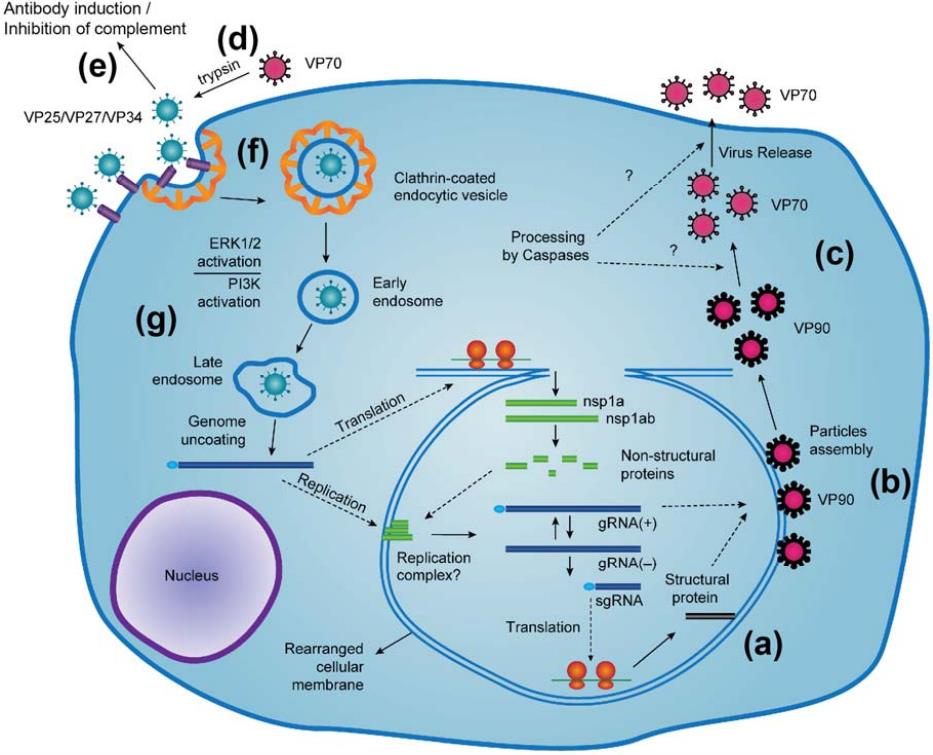Since in vitro diagnostics (IVDs) have risen as a new trend in the diagnosis of diseases, Creative Biolabs, as a world-leading provider of antibody development services for different applications, has successfully launched a series of IVD antibody development services for our clients all over the world.
Astrovirus
Astroviruses is nonenveloped, positive-sense single-stranded RNA viruses belonging to the family Astroviridae, which is in the genus Mamastrovirus. Astroviruses are measuring 28 to 30 nm in diameter with icosahedral symmetry and a smooth edge, and sometimes have a distinctive surface star-like appearance in the center. Astroviruses grown in cell culture represents spike-like projections. Human astrovirus (HatVs) contains at least 8 distinct serotypes (HastV 1–8), which is defined both antigenically and by genetic sequence differences. Astroviruses entry into the host cell by attachment to host receptors that mediate endocytosis, and the replication of HatVs complies with the positive-stranded RNA virus replication model. Translation occurs by -1 ribosomal frameshifting.
 Fig.1 Replication of human astroviruses.1
Fig.1 Replication of human astroviruses.1
Astrovirus Gastroenteritis
Astrovirus gastroenteritis predominantly occurs in young children, is typically regarded clinically mild. The mean incubation period is four to five days, and then followed by watery diarrhea lasting from one to four days or more. The following symptoms of astrovirus gastroenteritis include abdominal discomfort, vomiting, fever, and anorexia. Human astroviruses replicate principally in the epithelial cells of the small intestine. However, the systemic spread has been demonstrated in immunocompromised young children. Extremely high levels of astroviruses (up to 1013 genome copies/g) can be found in stools of infected patients, while virus excretion can be detected for about two weeks after symptoms have receded. Astroviruses trigger gastroenteritis through causing destructing the intestinal epithelium, resulting in the inhibition of normal absorption mechanism, loss of secretory functions, and diminution in epithelial permeability in the intestines.
Astrovirus Antibody Development Services
Nowadays, the specific diagnosis of rotavirus gastroenteritis is achieved via enzyme-immunoassay (ELISA), immunofluorescence, and real-time RT-PCR. The antigen-capture ELISA is ideal for assessing the infection status due to its relative ease of use. To meet this end, specific IVD antibodies with high affinity are necessary. Scientists at Creative Biolabs apply their unique expertise in antibody development to help generate high-quality IVD antibodies targeting Astrovirus. Moreover, we also provide one-stop diagnostic immunoassay development services, including feasibility analysis, assay design, assay protocol establishment, validation, and production.
Please feel free to contact us for more information.
Reference
- Arias, Carlos F., and Rebecca M. DuBois. "The astrovirus capsid: a review." Viruses 9.1 (2017): 15. Distributed under Open Access license CC BY 4.0, without modification.
For Research Use Only.

